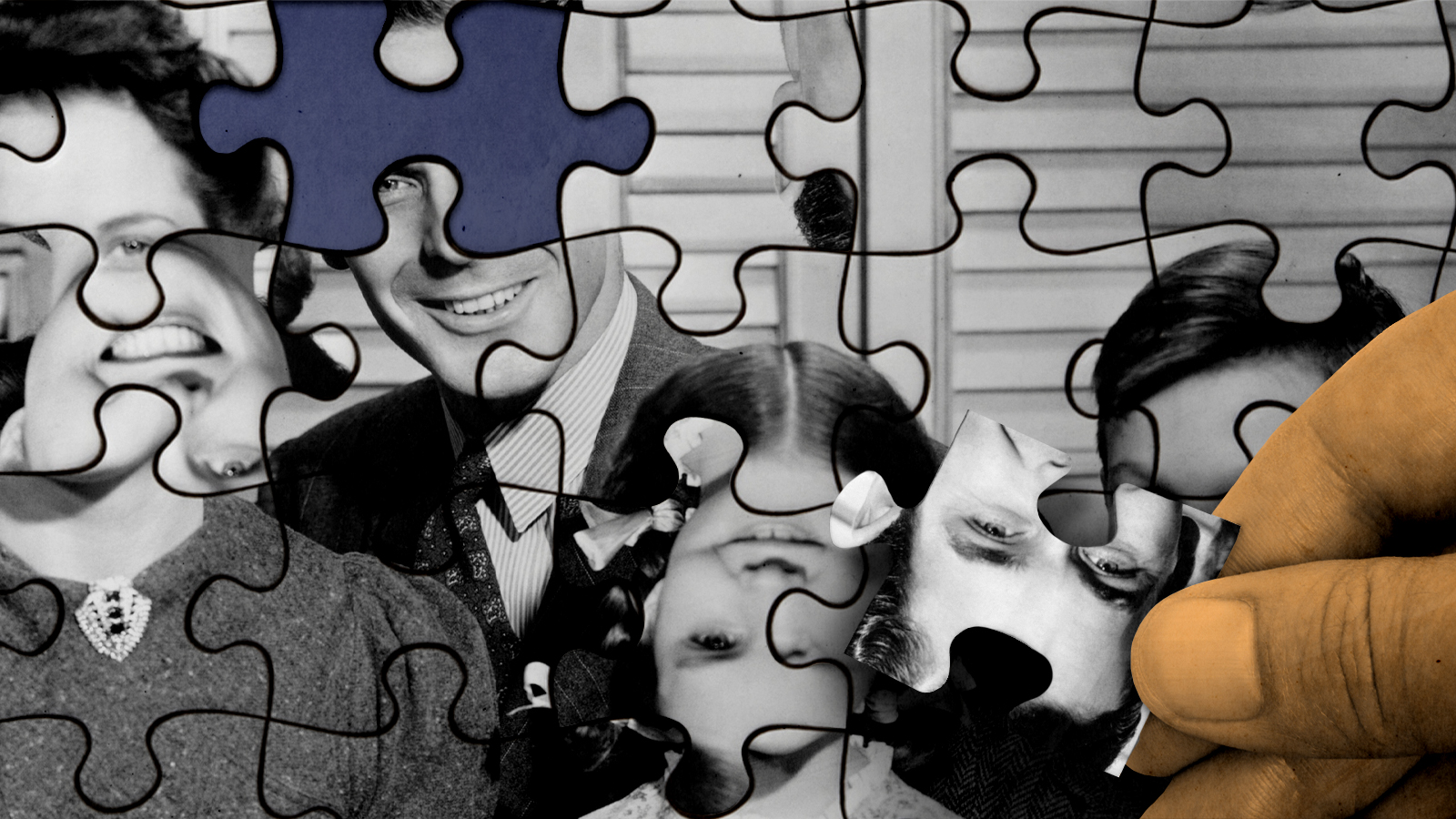Democrats are fighting a culture war over the American family, whether they realize it or not
Democrats aren't anti-family, but they don't understand the families Americans want


A free daily email with the biggest news stories of the day – and the best features from TheWeek.com
You are now subscribed
Your newsletter sign-up was successful
Are Democrats cultural radicals who want to transform the most intimate aspects of life? According to some academics, you wouldn't be entirely wrong to think so.
In a New York Times column by Thomas Edsall this week, Harvard political scientist Jennifer Hochschild observed that "the Democratic Party over the past few decades has gotten into the position of appearing to oppose and scorn widely cherished institutions — conventional nuclear family, religion, patriotism, capitalism, wealth, norms of masculinity and femininity, then saying 'vote for me.'"
The comment provoked challenges from progressive commentators. "I think a Democratic administration's policy is a much better guide to where the party is at than math curricula," Vox writer Zach Beauchamp wrote on Twitter, distinguishing controversies that blow up social media from the party's national agenda.
The Week
Escape your echo chamber. Get the facts behind the news, plus analysis from multiple perspectives.

Sign up for The Week's Free Newsletters
From our morning news briefing to a weekly Good News Newsletter, get the best of The Week delivered directly to your inbox.
From our morning news briefing to a weekly Good News Newsletter, get the best of The Week delivered directly to your inbox.
Beauchamp is right that the White House and Democratic leaders would like to distance their proposals from the excesses of the party's activist wing. And it's true that the president is not directly responsible for embarrassing school boards or local officials. But there isn't a neat separation between the economic policies the administration wants to emphasize and cultural conflicts they'd like to avoid. Even when they think of themselves as moderates, Democrats have embraced unpopular assumptions that are inextricable from their policy preferences.
Take childcare, a centerpiece of the administration's Build Back Better plan. To most Democrats, plans for universal pre-school starting at age 3 and subsidized daycare seems like commonsense. Childcare is expensive and can be hard to find, especially under pandemic conditions. So federal support for these services seems like an obviously pro-family measure, contrary to the caricature of sexual revolutionaries.
Even if they aren't secret Marcusians, though, the Democrats' proposal is based on some dubious premises. One is that childcare should be a credentialed occupation. The proposal grandfathers in workers without a college degree, but would require them for subsidized providers moving forward. That's consistent with the vision of "early childhood education" that's widespread among academics —who are also in the business of providing and overseeing the relevant credentials. But it's not necessarily shared by voters, who are much more divided about the benefits of formal education.
Another latent conflict is that the proposal limits religious daycare options. As Ethics & Public Policy fellow Patrick T. Brown points out:
A free daily email with the biggest news stories of the day – and the best features from TheWeek.com
Fully one-third of married parents who use child care outside the home send their young ones to a program located at a church, place of worship, or private school. That may even underestimate the role of religious care providers: one poll found that half of parents participating in center-based child care attend a program with a religious affiliation. -Patrick T. Brown, City Journal
Yet the Democrats' proposal would force all recipients of federal subsidies to abide by educational and other mandates, including non-discrimination regulations, while barring church facilities from receiving certain benefits under any circumstances. There's no way to defend these restrictions without taking a stand in bitter arguments about the proper relationship between church and state.
Above all, though, the administration's commitment to professionalized childcare so parents can work outside the home is at odds with public preferences for more traditional arrangements. As my colleague Bonnie Kristian has argued (based on research from the American Compass think tank), most Americans rank one parent working while the other stays at home as their optimal situation. Only those with incomes over $150,000 actually preferred both parents working.
Despite what Democrats want to believe, then, policies like daycare subsidies and universal pre-k aren't concrete benefits that can be clearly distinguished from social and moral disagreements. They're based on a specific and controversial premise about the right way to live: that the nuclear family with a primary, usually male breadwinner, is at best only one among many options (and probably inferior to more flexible, egalitarian arrangements). That assumption is widespread among the educated professionals who are Democrats' core constituency but contested or rejected by the non-college majority.
It's culture war, whether they know it or not.
Samuel Goldman is a national correspondent at TheWeek.com. He is also an associate professor of political science at George Washington University, where he is executive director of the John L. Loeb, Jr. Institute for Religious Freedom and director of the Politics & Values Program. He received his Ph.D. from Harvard and was a postdoctoral fellow in Religion, Ethics, & Politics at Princeton University. His books include God's Country: Christian Zionism in America (University of Pennsylvania Press, 2018) and After Nationalism (University of Pennsylvania Press, 2021). In addition to academic research, Goldman's writing has appeared in The New York Times, The Wall Street Journal, and many other publications.
